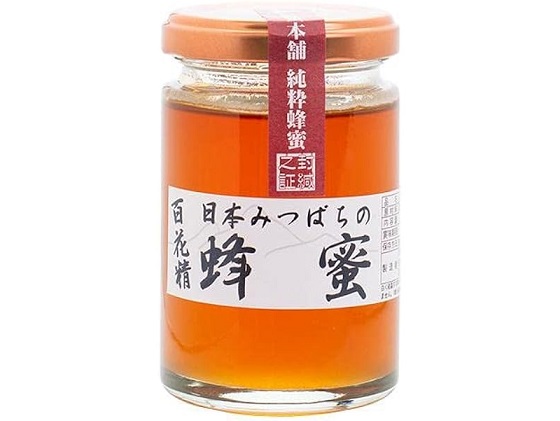Korean Study Finds That Hovenia Dulcis Honey Has Antiviral Properties Against Influenza A Viruses
Nikhil Prasad Fact checked by:Thailand Medical News Team Jan 13, 2025 3 months, 1 week, 5 days, 21 hours, 32 minutes ago
Health News: Nature’s Secret Weapon Against Viruses
Influenza remains a significant health concern, with seasonal outbreaks causing widespread illness, especially among vulnerable populations like the elderly, children, and those with weakened immune systems. Existing treatments, including vaccines and antiviral drugs, face challenges due to the virus’s ability to rapidly mutate. As a result, researchers continue to explore alternative solutions, turning their attention to natural remedies that may bolster the immune system.
 Korean Study Finds That Hovenia Dulcis Honey Has Antiviral Properties Against Influenza A Viruses
Korean Study Finds That Hovenia Dulcis Honey Has Antiviral Properties Against Influenza A Viruses
In a recent groundbreaking study, scientists from the Korea Institute of Oriental Medicine, the National Institute of Forest Science, and the Rural Development Administration in South Korea examined the antiviral properties of Hovenia dulcis honey (HDH). This
Health News report explores their findings, revealing how this unique honey combats the influenza A virus (IAV) through the enhancement of innate immunity.
Hovenia Dulcis Honey: A Natural Powerhouse
Hovenia dulcis honey, derived from the Japanese raisin tree, is known for its rich antioxidant content and medicinal properties, including its ability to alleviate arthritis, muscle pain, and hangovers. Researchers hypothesized that these bioactive compounds might also make it a powerful antiviral agent. To test this, they conducted experiments using macrophage cells, a key component of the body’s innate immune response.
Study Highlights and Key Findings
The research team’s experiments focused on understanding how HDH interacts with the innate immune system to suppress IAV infection. Using RAW 264.7 macrophage cells, they observed a range of beneficial effects, including reduced viral replication, enhanced production of antiviral proteins, and lower oxidative stress levels.
How HDH Enhances Innate Immunity
At the core of HDH’s antiviral power lies its ability to stimulate the cGAS - STING pathway, a critical component of the innate immune response. When cells detect viral DNA, this pathway triggers the production of interferon-beta (IFN-β), a protein that prevents viruses from replicating and spreading.
The study revealed that HDH treatment significantly increased IFN-β production in infected cells. The honey not only boosted intracellular levels of this key protein but also enhanced its secretion into the surrounding environment, amplifying the immune response.
Targeting Viral Replication
One of the most striking findings was HDH’s ability to reduce the production of viral proteins, including nucleoprotein and neuraminidase, which are essential for viral replication. By interfering with these processes, HDH effectively limits the virus’s ability to spread within the host.
Managing Oxidative S
tress
Influenza infections are notorious for causing oxidative stress, which can damage cells and weaken the immune response. HDH demonstrated remarkable antioxidant properties by reducing levels of reactive oxygen species (ROS) in infected cells. It achieved this by upregulating the expression of proteins like Sirt3 and SOD2, which are essential for maintaining cellular health.
Boosting Antiviral Genes
In addition to its direct effects on viral replication and oxidative stress, HDH also activated genes that play a crucial role in antiviral defense. These include ISG15, ISG20, and ISG56, which work together to inhibit various stages of the viral lifecycle. By enhancing the activity of these genes, HDH helps the immune system mount a more effective response against IAV.
Wider Implications and Future Directions
The multifaceted effects of HDH suggest that it could be an invaluable tool in the fight against influenza and potentially other respiratory viruses. However, as with any promising treatment, further research is needed to validate these findings. Studies involving human cells and clinical trials will be crucial in determining the practical applications of HDH.
The study also opens the door to exploring other natural products with similar properties. By identifying and isolating the specific compounds responsible for HDH’s antiviral effects, researchers could develop targeted therapies that harness the power of nature to combat infectious diseases.
Conclusions
The study conducted by researchers from the Korea Institute of Oriental Medicine, the National Institute of Forest Science, and the Rural Development Administration provides compelling evidence that Hovenia dulcis honey is a potent natural remedy against influenza A virus. Through its ability to enhance innate immunity, suppress viral replication, and reduce oxidative stress, HDH offers a multifaceted approach to combating this persistent health challenge.
The findings underscore the importance of natural products in modern medicine and highlight the potential of HDH as a complementary treatment for viral infections. By enhancing the immune response and mitigating the damaging effects of oxidative stress, HDH addresses both the root cause and the symptoms of influenza. These results pave the way for future research and hold promise for the development of new, natural antiviral therapies.
The study findings were published in the peer-reviewed journal: Antioxidants.
https://www.mdpi.com/2076-3921/14/1/71
For the latest Influenza News, keep on logging to Thailand
Medical News.
Read Also:
https://www.thailandmedical.news/news/uk-scientists-unveil-the-therapeutic-potential-of-honey-as-a-natural-aid-for-sepsis-and-covid-19-infections
https://www.thailandmedical.news/news/breaking-italian-scientists-find-sars-cov-2-in-honey-bees-and-honey-collected-in-apiaries-across-the-campania-region
https://www.thailandmedical.news/news/melittin-from-honey-bee-venom-shows-promise-against-t-cell-leukemia
